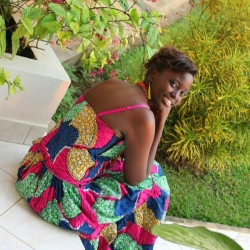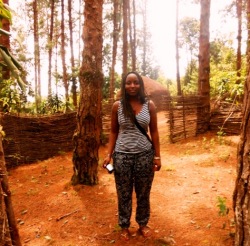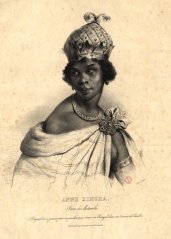Liana and Belise are Burundian women and although their roots take them back to the small East African country, Liana and Belise met in Australia. Belise, a professional in accounting, has been in Melbourne since 2005 and has been away from her native country since then. She finally revisited Burundi last December. At her end, Liana arrived in Australia in March 2013 through an AusAid scholarship to study international community development at Victoria University. The two women have differing experiences of Burundi and they describe in their own words what makes them so proud and feel love for their country.
Liana describes “Burundi is a small and beautiful country located in the East part of Africa along the banks of Lake Tanganyika where you can eat the tastiest fish. Burundi is a warm country with welcoming people and rich in culture”. What is a bit less known about the country is that it was first colonised by the Germans who ceded control to Belgium at their defeat at the end of World War I in 1918. At that time and until early 1960, Burundi and Rwanda were a single colony known as Ruanda-Urundi. Belise and Liana agree on what makes them proud of Burundi, “the Burundian drummers are very well known and they make us proud. It’s about what they sing when drumming”, continues Liana. “The lyrics are about the pride of the country, of being Burundian and what the country has accomplished”. Not only does the sound of the drums have a deep meaning and bring pride but “all young women are very proud of performing traditional dances. Also, the songs have a meaning, to a particular group and teach the history of the country”. Drumming, dancing and singing reflect perfectly the Burundian culture as they are strong socialising elements of Burundian society. Burundians are very social and Liana, who is from the capital city of Bujumbura, talks about her experience. “People take time to talk to each other. At celebration events like births, people come together, play music and dance. The particularity of Bujumbura is that it is a small and beautiful capital where there are strong social connections between people and it is easy to get to know each other which is even emphasised in the Burundian countryside”.
Belise, who left Burundi as an 8 year-old with all her family, spent about 11 years in a refugee camp in Tanzania before arriving in Australia in 2005. That same year when Liana landed in Australia, Belise took off for Bujumbura to rediscover her native country and reunite with family members who have been away from her for too long. Belise too describes “throughout my road trip across Burundi, I was welcomed and fed in every house. I’m amazed how friendly, hospitable and peaceful Burundians are”. With her father from the Northern town of Kayanza (near Rwanda) and her mother originally from the central town of Gitega, Belise got to reconnect with Burundi on many levels; with the vast green hilly land, her loved ones and friendships formed during her time in Tanzania. Burundi, like Rwanda, is the native land of the Twa people and is also inhabited by Hutus and Tutsis who have also suffered hard times during their history. Today the people’s connectedness makes the Burundians society peaceful, strong and ready to rebuild the country.
Liana says “the strength of our community is social cohesion. It makes you feel you’re part of something. Poverty is really relative, the fact of not having a work and earning a living it’s big here [in Australia] but back in Burundi it’s okay for a sick person who can’t work because they’re supported by someone, the neighbour for example. We are very interdependent and it keeps us stronger because what matters is not what we have but what we share”. Liana is very grateful for this opportunity to study international development in Australia as she is passionate about sharing her skills and knowledge to rebuild the country. “It was a great opportunity for me because I came to that stage of my life where I really wanted to work with people back in Burundi because we are in this rebuilding stage of the country and I thought I lacked some skills”. She found inspiration for social work from a previous experience with the Friends Women Association to improve women’s conditions especially for those with HIV in areas stricken by the civil war. She claims that it was “a life-changing experience to see the project empowering women and breaking this cycle of trauma. Women were socially and economically excluded”. She witnessed “they [women] found strength. Women who fought against each other and are today sitting side by side and starting a business together. That is what showed me that if at grassroots level people who intensely lived that conflict period can manage to get to that level of reconciliation so nothing can stop them to rebuild and follow a better future for them, us and future generations”.Liana talks about the same women who in order to end the war in Burundi managed to create a coalition of Hutu, Tutsi and Twa women to be one united voice at peace talks. Since then, it has been decreed that a 30% quota of women must be repesented in Burundi’s decision making structures.
Today Liana and Belise admirably follow the steps of their aunties and elders who have shown love, compassion, peace and unity between one another. The two friends are now contributing in Australia. Belise joined the Africa Media Australia non-profit organisation to assist with filming activities to broadcast news throughout Australia’s African community and Liana is an active member of I Am A Peace Soldier campaign launched in June this year by the charismatic and role model David Nuyol Vincent to encourage people for ‘fight’ for peace with words and love.




